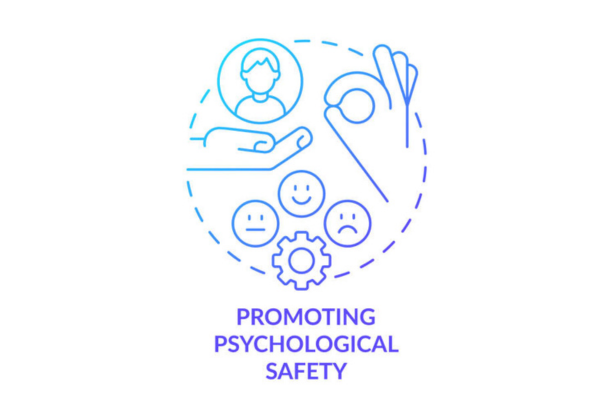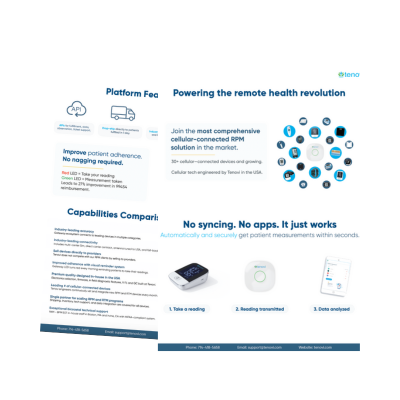Research extensively covers the relevance of psychological safety in healthcare. However, there is limited research on the correlation between psychological safety in remote patient monitoring (RPM) and patients. In the RPM context, this article explores the concept of psychological safety for patients. It also highlights a newly developed scale for measuring the psychological safety of patients and its potential to cultivate adaptive learning, and creativity, with measurable improvements in people’s health and wellbeing.
What is Psychological Safety in Healthcare?
First, psychological safety is the belief that one will not be punished for speaking up. Psychological safety in healthcare pertains to the work environment and the sense of ease, respect, and trust individuals experience in their interactions with team members. It can also encompass patients’ perception of feeling secure and comfortable when receiving medical attention, both physically and emotionally. Furthermore, psychological safety in healthcare encompasses patients’ ability to ask questions, express their feelings, and share concerns without apprehension of being judged or experiencing negative consequences. It is a vital aspect of patient-centered care and can significantly impact patient satisfaction, trust, engagement, and health outcomes.
Psychological Safety and Remote Patient Monitoring Research
If you are a healthcare leader regularly bringing new employees on board, you know the onboarding journey begins with psychological safety. While there are limited studies that precisely measure psychological safety in remote patient monitoring, several studies have investigated the impact of remote patient monitoring, suggesting that RPM positively impacts patient engagement, satisfaction, and perceived quality of care, which can indirectly influence psychological safety.
The Neuroception of Psychological Safety Scale (NPSS), published in 2022, is the first measure, combining psychological, physiological, and social components. It has the potential to be used in various settings, such as tracking progress in therapy or assessing whether a sense of psychological safety enhances learning or improves hospital outcomes. It can also be applied to psychological safety during the COVID-19 pandemic. Feeling psychologically safe protects us from stress, anxiety, and low mood and promotes post-traumatic growth after adversity. Future research may benefit from investigating the direct relationship between RPM and psychological safety to further improve patient outcomes and experiences.
Remote Patient Monitoring and Psychological Safety in Healthcare
Psychological safety in healthcare is crucial to ensure patients feel comfortable and confident in sharing their health data and concerns with healthcare providers without fear of judgment, criticism, or adverse consequences. Below are some ways in which psychological safety in healthcare also applies to remote patient monitoring:
- Encouraging open communication: Remote patient monitoring requires patients to share personal health information with their healthcare providers regularly. Providers must create a safe environment for patients to share their data and concerns openly without fear of being judged or reprimanded. Providers should establish clear lines of communication and demonstrate active listening skills to help patients feel heard and valued.
- Building trust: Patients must trust that their healthcare providers and third-party vendors will keep their health data secure and confidential with HIPAA-compliant methods. Providers must communicate clearly and transparently about how patient data will be collected, stored, and used and reassure patients that their information is safe. Providers should also demonstrate expertise in the technology and tools used in remote patient monitoring to instill confidence in patients.
- Addressing patient concerns: Patients may have concerns or anxieties about remote patient monitoring, especially if they are unfamiliar with the technology or have privacy concerns. Providers should take the time to listen to these concerns and provide reassurance and guidance where needed. Providers should also be available to answer questions and provide support throughout the remote monitoring process.
Psychological safety is essential in remote patient monitoring to promote patient engagement, trust, and satisfaction. Therefore, providers must create a safe and supportive environment that encourages open communication, builds trust, and addresses patient concerns to ensure successful remote patient monitoring.
Remote Patient Monitoring Solutions that Promote Support
Psychological safety is equally essential when onboarding patients new to remote patient monitoring. It needs to be more than just claiming that your organization is welcoming. You must demonstrate your commitment to creating a safe and supportive environment through your actions. Outsourcing remote patient monitoring to a reputable third-party vendor can help patients feel psychologically safe when onboarding them with cellular or Bluetooth remote patient monitoring devices in the following ways.
Remote Patient Monitoring Onboarding and Technical Support
- Educate patients: Remote patient monitoring vendors should provide comprehensive information about the device, how it works, and its benefits. In keeping with psychological safety in healthcare, patients must understand the device’s purpose, how to use it, and what to expect from the monitoring process. This information should be communicated in simple language to avoid confusion or anxiety.
- Ensure privacy and security: Patients must feel assured that their data is collected and stored securely. Therefore, RPM vendors should ensure that their technology platform is HIPAA-compliant and that patient data is encrypted and protected from unauthorized access. Vendors should also understand guidelines on how data is used and who can access it.
- Provide ongoing support: RPM vendors should support patients throughout the monitoring process. This support should include troubleshooting assistance and opportunities for patients to ask questions or express concerns. Vendors should also ensure that patients can access healthcare professionals if they require further medical support.
- Foster open communication: To create a culture of psychological safety in healthcare, open communication and feedback between support teams and patients are vital. Patients should feel encouraged to share their concerns or questions about the device or the monitoring process without fear of judgment. Vendors should also encourage patients to provide feedback on the device’s usability or any issues they may encounter during the monitoring process.
- Personalize the experience: RPM vendors should aim to personalize the patient experience by tailoring the monitoring process to individual patient needs. Personalization can help patients feel more engaged and invested in monitoring, leading to better outcomes.
In summary, RPM vendors can support patients in feeling psychologically safe in healthcare during the onboarding process by providing education, ensuring privacy and security, providing ongoing support, fostering open communication, and personalizing the patient experience.
Focus on Psychological Safety in Healthcare with Tenovi
While many remote patient monitoring (RPM) vendors strive to provide a safe and comfortable onboarding experience, Tenovi stands out as one of the best in showing patients psychological safety when introducing them to remote patient monitoring devices. Tenovi understands that patient engagement and trust are crucial to successful RPM outcomes. Therefore, our technical support is HIPAA-compliant. Our technical support team goes above and beyond to ensure patients feel supported, informed, and empowered throughout onboarding and providing technical support throughout their remote patient monitoring journey.
Tenovi achieves this by providing patients with a comprehensive education on how the device and the monitoring processes work. They ensure patient data is secure and confidential and provide ongoing support, including troubleshooting assistance and regular check-ins. Our technical support specialists personalize the patient experience to meet individual needs, creating a more engaging and meaningful RPM experience.
Tenovi helps patients feel more confident, engaged, and invested in the monitoring process by creating a safe and supportive environment. Book a free demo today to learn more about Tenovi’s remote patient monitoring services and solutions.


